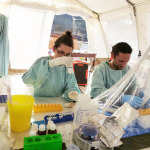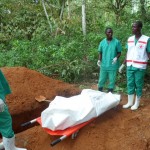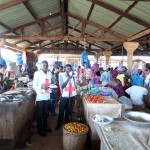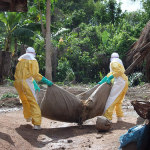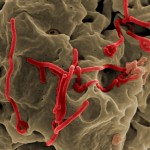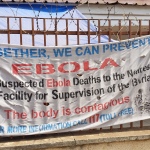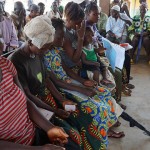This paper seeks to understand the fear many Guineans feel towards Ebola response initiatives and why the educators, doctors and burial teams have sometimes encountered resistance, occasionally violent. Resistance has been catastrophic for the epidemic, preventing treatment, contact tracing and quarantine, permitting its spread. The paper sketches a history of dissent and violence during the epidemic before showing how some actions that Ebola response teams interpret as ‘resistance’ are less actions ‘against’ Ebola response, than actions that have their own cultural logics. But the paper
Continue reading →
The present document is the eighth and final report in a series presenting descriptive results of a survey of responses to Ebola and Ebola control in 26 villages in all three provinces of rural Sierra Leone, fieldwork for which was undertaken in December 2014. The report covers three villages in Gbo chiefdom, in Bo District. Some emphasis is placed on how inconsistencies of Ebola response are perceived at local level, and undermine trust. Ebola responders should not only improve the quality of their messages, but
Continue reading →
The four villages in this report are found on the edge of the Gola Rainforest National Park, Sierra Leone and have been studied by members of the present team at intervals since 1987. The aim of this long-term study was to understand social composition and social change in forest-edge communities, and how these communities were adapting to conservation rules and opportunities. These villages have now been restudied as part of the SMAC community mobilization program for prevention of Ebola Virus Disease. This study, which was
Continue reading →
This study aimed to support Oxfam’s Public Health Promotion (PHP) strategy through a rapid qualitative assessment of the remaining social barriers to compliance with Ebola prevention and treatment messages. At the time of the study, most Liberians had a high awareness of Ebola prevention and treatment information. However, new infections continued to occur in “hot spots” around the country. A preliminary assessment suggested that negative perceptions and fear of Ebola response efforts contributed to non-compliance and resistance in some areas. Research activities assessed the sources
Continue reading →
This report provides further output from an anthropological study of 25 villages affected by Ebola Virus Disease in eastern and central Sierra Leone, undertaken as part of the DFID-funded social mobilization initiative for Ebola prevention in Sierra Leone. Eight focus group transcripts for 3 villages in Kenema District are presented, covering local responses to health issues, and Ebola in particular. Supporting material from a matching questionnaire-based study of health behavior and perceived causes of Ebola is also provided. Of particular relevance are two summary tables
Continue reading →
This paper by Anoko J. N., reports on the success of a communication programme among 26 rebellious villages in Forest Guinea during fieldwork in June-July 2014. This was based on listening to complaints and taking into account the customs and culture of those concerned. The main methodologies were socio-anthropological enquiry and action research, based on bibliographic research, observations, formal and informal interviews with resource persons and political leaders from Forest Guinea; women , young and very old people of both sexes, street vendors, restaurateurs, local
Continue reading →
